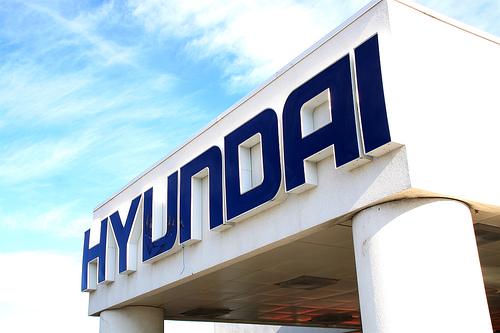Hyundai has announced at a press release that it has plans to launch an electric sedan in early 2016, followed later by an SUV and a sports car. It now appears as though Hyundai is changing their company strategy with the car manufacturer stating in 2012 that its Kia division would focus on pure electric cars, while Hyundai would concentrate on developing PHEVs and hydrogen fuel cell cars.
“Hyundai’s first pure EV will be a mid-sized sedan,” says a Hyundai official in a press statement. “Equipped with improved batteries, enhanced system management and lighter materials, the upcoming model will weigh about 30 percent less than existing hybrid EVs,” he adds.
Hyundai EV sedan to weigh 30% less than competitors
In relation to this new company direction, Hyundai has recently added to its roll of executives Albert Biermann who will function as its Executive VP. He will be tasked to oversee the design of the new Hyundai electric cars.
LG Chem, is slated to supply the batteries for the company’s first electric vehicle. But so that the company will not be tied down to just one supplier, Hyundai is also intent on sourcing its electric car batteries from the SK Group.
The Hyundai electric vehicle that will be launched in 2016 will be a mid-size sedan. With this new direction, Hyundai will be competing with its old rivals in offering electric cars, It will be the first for the company since it was established in 1947, interestingly as a construction firm.
Kia, an affiliate of Hyundai, has carried the group’s electric car program. It was a “dividing” of roles as explained by Lee Ki-sang, Senior Vice President. This division, however, is about to change, even if the sales of electric cars in South Korea is just small.
A division of roles as Hyundai plan to tackle EV industry
“There is no clear direction about which eco-friendly cars will win” says Lee Ki-sang. He is the head of the joint division responsible for zero-emission cars at Kia and Hyundai. “We are dividing the roles of Hyundai and Kia, with Hyundai launching fuel cell cars and Kia focusing on electric cars.” But that has already changed as of this year.
By 2016, the company will launch its first Hyundai electric vehicle. It will not look like the bizarre looking E4U with its unusual egg shape. Kia has sold the Ray EV in Korea since 2012, but sales of the cars have not been as vigorous as the company had hoped for.
Electric vehicle consumption expected to increase over the coming years
But all car manufacturers have experienced the same sluggish sales. Chevrolet’s Spark and Renault’s SM3 EV have only managed to sell 713 vehicles in 2013. Perhaps this is the reason why the Ray EV has targeted car-sharing schemes and government users.
That Hyundai electric vehicle program will grow dramatically in the coming years. This shows that Hyundai is perhaps ready to ditch its hydrogen fuel cell vehicle efforts. The car maker announced that it will offer no less than 12 PHEV models by 2020 and at least one BEV.
The future PHEVs (or possibly BEVs) that Hyundai will produce will include a sporty electric car, an SUV and a number of smaller sedans/hatchbacks.
Photo by: Terry Long on Flickr



